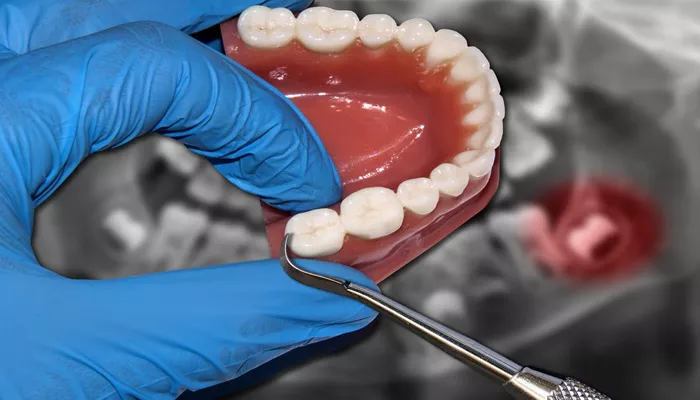Wisdom teeth, also known as third molars, are the last set of molars that typically emerge in late adolescence or early adulthood, generally between the ages of 17 and 25. Unlike other teeth, wisdom teeth often pose unique challenges due to their position at the back of the mouth and the limited space available for them to emerge properly. These factors can lead to various dental issues, such as impaction, misalignment, and infection, making their removal a common necessity.
The extraction of wisdom teeth is a procedure that many people undergo, but it is often accompanied by apprehension and anxiety due to the perception that it is more painful than the removal of other teeth. In this article, we will explore the factors that influence the pain associated with wisdom teeth removal and compare it to the extraction of other teeth.
Factors Influencing Pain in Wisdom Teeth Removal
Several factors contribute to the pain experienced during and after the removal of wisdom teeth. Understanding these factors can help clarify whether wisdom teeth extraction is indeed more painful than other teeth removal.
SEE ALSO: Are Dental Implants Safe for Your Health?
Impaction and Complexity
One of the primary reasons wisdom teeth removal can be more painful is the frequency of impaction. Impacted wisdom teeth are those that do not fully emerge from the gum line or grow in the wrong direction, often due to a lack of space. This impaction can cause the teeth to become stuck in the jawbone or gum tissue, making their extraction more complex and invasive. In contrast, the removal of other teeth, especially those that are fully erupted and aligned, tends to be less complicated.
Position in the Mouth
The position of wisdom teeth at the back of the mouth makes them harder to access during extraction. Dentists often need to use specialized instruments and techniques to reach and remove these teeth, which can increase the complexity of the procedure. This is unlike the removal of front teeth or premolars, which are more accessible and typically easier to extract.
Bone Density and Age
The bone surrounding wisdom teeth is often denser than that around other teeth, particularly in younger patients. This density can make the extraction process more difficult and potentially more painful. Additionally, as individuals age, the roots of the wisdom teeth become more firmly embedded in the jawbone, increasing the difficulty and discomfort of the removal process.
Postoperative Healing and Complications
Wisdom teeth removal is more likely to result in postoperative complications such as dry socket, a painful condition where the blood clot at the extraction site dislodges or dissolves before the wound heals. Dry socket can significantly increase the pain experienced after the procedure. While other teeth extractions can also lead to dry socket, it is more commonly associated with the removal of lower wisdom teeth.
Comparing Pain in Wisdom Teeth And Other Teeth Extractions
Local Anesthesia and Sedation
Both wisdom teeth and other teeth extractions are typically performed under local anesthesia, which numbs the area and prevents pain during the procedure. In more complex cases, such as impacted wisdom teeth, sedation or general anesthesia may be used to ensure patient comfort. The level of anesthesia used can influence the pain experienced during and immediately after the procedure, making it comparable between wisdom teeth and other teeth extractions.
Surgical Techniques
The techniques used in wisdom teeth extraction often involve making incisions in the gum tissue, removing bone around the tooth, and sectioning the tooth into smaller pieces for easier removal. These surgical steps can contribute to increased pain and discomfort compared to the straightforward extraction of fully erupted and aligned teeth. However, the skill and experience of the dentist or oral surgeon play a crucial role in minimizing pain and ensuring a smooth recovery.
Recovery Period
The recovery period after wisdom teeth removal tends to be longer and more uncomfortable than that of other teeth extractions. Patients may experience swelling, bruising, and pain in the jaw, making it difficult to eat and speak for several days. Over-the-counter or prescribed pain medications are often necessary to manage this discomfort. In contrast, the removal of other teeth, particularly those that are not impacted, usually involves a shorter and less painful recovery period.
Managing Pain And Promoting Healing
Pain Management Strategies
Effective pain management is essential for a comfortable recovery after any tooth extraction. Dentists may prescribe pain relievers, anti-inflammatory medications, and antibiotics to prevent infection and reduce discomfort. Applying ice packs to the affected area, maintaining good oral hygiene, and avoiding strenuous activities can also help alleviate pain and promote healing.
Follow-Up Care
Follow-up care is crucial in monitoring the healing process and addressing any complications that may arise. Dentists may schedule follow-up appointments to ensure the extraction site is healing properly and to remove any stitches if necessary.
Patients should adhere to their dentist’s post-operative instructions to minimize pain and prevent complications.
Conclusion
In conclusion, while the removal of wisdom teeth is often perceived as more painful than the extraction of other teeth, this is not always the case. The complexity of the extraction, the position of the teeth, and the presence of impaction are significant factors that influence the level of pain experienced. However, with proper pain management strategies and the expertise of a skilled dentist or oral surgeon, the discomfort associated with wisdom teeth removal can be effectively minimized.
Ultimately, the pain experienced during and after tooth extraction varies from person to person and depends on several factors, including the specific circumstances of the extraction and the individual’s pain tolerance. By understanding these factors and following recommended care instructions, patients can navigate the process of wisdom teeth removal with greater confidence and comfort.

